Bobby [Fischer] visited the Philippines in 1976, when ‘Campo’ was trying to revive the match with Karpov. I got to stay with Bobby for a whole month...
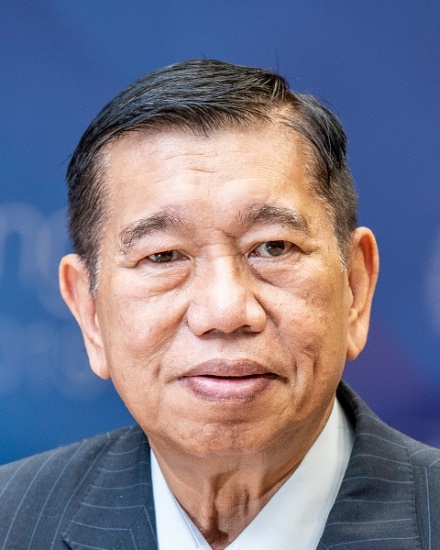 I have the pleasure of interviewing Casto Abundo. Called ‘Toti’ by his family and friends, he is one of the most relevant personalities in the world of chess in the last 50 years.
I have the pleasure of interviewing Casto Abundo. Called ‘Toti’ by his family and friends, he is one of the most relevant personalities in the world of chess in the last 50 years.
He was born on 3 November 1950 in the city of Manila, the capital of the Philippines: an archipelago made up of 7,107 islands located between the South China Sea and the Pacific Ocean.
A brief overview of his chess career shows that Casto Abundo is a FIDE International Arbiter (1978) and a FIDE International Organiser (1998); he is also an Organising Lecturer and Member of the FIDE Qualification (QC) and Historical (HC) Commissions. In addition, he has been recognized as an Honorary FIDE Member and Special Advisor to FIDE President Arkady Dvorkovich. He is a delegate of the Philippine Chess Federation and Executive Director of the Asian Chess Federation.
I first met Casto Abundo at the 1992 Manila Olympiad, where he demonstrated great organisational and communication skills. Subsequently, I have followed his journey and work together in FIDE. He was always present at our Chess in the Schools Commission meetings when I chaired it. Because of his merits, I do not hesitate to consider him a great referee and chess organiser at a global level.
Together with his tutor and friend Florencio Campomanes (1927 - 2010), Eugenio Torre and Wesley So are perhaps the best known Filipino chess players on the planet. Today he will show us some of his knowledge and extensive experience in the complex field of chess.
Uvencio Blanco: Mr. Abundo, although Covid-19 and its mutations remain a serious threat to our society, we are learning to live with it. How has it affected Asians, and what is its effect on the development of chess?
Casto Abundo: Just as FIDE managed to survive the pandemic by moving to online chess, the Asian Chess Federation organized championships online and by hybrid chess. We got record numbers of participation in the Asian Youth Online championship and other events.
Do you think this pandemic has offered humanity some important lessons?
Yes, stay home and play chess online during pandemics.
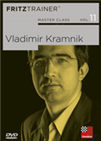 This DVD allows you to learn from the example of one of the best players in the history of chess and from the explanations of the authors (Pelletier, Marin, Müller and Reeh) how to successfully organise your games strategically, consequently how to keep y
This DVD allows you to learn from the example of one of the best players in the history of chess and from the explanations of the authors (Pelletier, Marin, Müller and Reeh) how to successfully organise your games strategically, consequently how to keep yAnother plague affecting us at the moment is the war that is developing as a result of Russia’s invasion of Ukraine. This has had serious consequences in many different areas of society, and sport is no exception. What are your thoughts on this issue?
It is a balancing act for the International Olympic Committee to be against the war, but at the same time allow Russian individual athletes to compete. The Asian Chess Federation (ACF) follows the guidelines of FIDE.
What can you tell us about your practice and work for the martial arts?
Today, I enjoy teaching new arbiters.
At times, you seem unwilling to enter the political arena. In fact, your capacity for moderation is probably the main reason for your professional success. So let’s get down to business. What memories do you have of your early chess playing and tournaments when you were studying at the Ateneo de Manila University?
As University champion, I pushed for participation of our University in the Inter-Collegiate chess team championships, where I met chess players from other universities who became my lifelong friends. Chess was not considered a sport and was not included in the University Athletic leagues. Campo and I lobbied the boards of the Athletic Associations to include chess. As a result, universities started offering scholarships to chess players and hiring full-time coaches.
As a player, you were part of teams that participated in the Asian Games and others tournaments of importance. What can you highlight from these experiences?
I was a member of the 1985 Manila team to the Asian Cities Chess Team Championship in Hong Kong, where I won the gold medal on board 5.
We observe that every day the chess gap between chess in Europe and Asia is getting shorter; new powers such as China and India are generating a great movement to promote new values. What is your opinion on this subject?
China now holds both the Men’s and Women’s crowns. Uzbekistan is Olympiad champion. Most of the medallists in the recent World Schools in Greece are from Asia. And now the Chess Federation of Russia will further raise the level of Asian chess.
What influence does the migration of the Russian chess federation to Asia have?
The move of the Chess Federation of Russia (CFR) to the Asian continent was done in accordance with ACF Statutes. The vote was 29 in favour, 1 against and 6 abstentions. The Delegates are of the opinion that it will make Asian chess stronger and give players more chances to improve their strength.
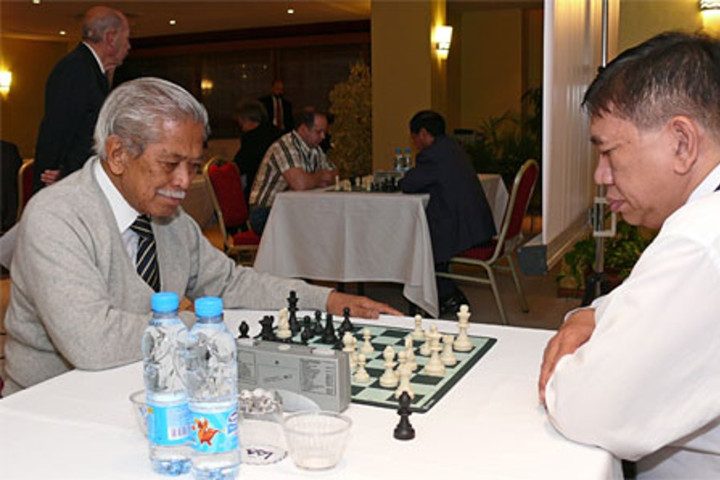
Campo and Toti playing blitz games
Casto Abundo is an extremely modest and low-profile man; he is married and has two children. He shows a very modern and up-to-date view of the world; an ability that allows him to foresee what the chess world might be like in 2, 5, 10 or 20 years. However, he lives and works entirely in the present.
As one of the main directors of the Asian Chess Federation, how do you perceive the chess movement in schools in Southeast Asia?
For my country, the Philippines, we are trying to start teaching in local dialects because pre-school children learn to speak their dialects before they learn the national language. We shall try to maximize the reach of the internet to teach beginners. Then we need the schools to organise competitions within the school and with other schools.
What is the current status of chess in the Philippines? Is it a growing sport and does it have official recognition and support?
The economy affects all fields of endeavour in the Philippines. Many of our grandmasters have migrated to developed countries for better work opportunities as trainers or coaches. We cannot prevent players like Wesley So and others from seeking greener pastures. The Philippine government is helping support all sports, including chess.
In a sense, Casto Abundo was ahead of his time, so early in his career he may have been misunderstood. However, due to his extraordinary leadership, organisational and refereeing work, members of the international chess community began to appreciate the value of his work and his contributions to the discipline.
Why did you decide to arbitrate and organise tournaments, and what do you consider to be the most important tournament of your career?
When I was in University, there was no chess organiser and I had to learn how. When I joined youth championships, which started at 8am daily, I made Swiss pairing cards, so I could prepare overnight for my opponent. This came to the attention of Campomanes, who invited me to be an Arbiter in the National Championship. I have had the good fortune to be Arbiter for almost all current world champions and top players in the World Championship Match, World Cup, World Team Championship, etc. Those were my easiest tournaments as Chief Arbiter. My most difficult tournaments were with children, such as when I was Chief Arbiter of the 2013 World Youth Championship with thousands of players.
In Asia and in FIDE itself, you have had the opportunity to work with some of the most important FIDE arbiters and tournament organisers. Can you name some of the most relevant in each of these fields?
I enjoyed organizing tournaments and that was how I made my living in Manila before I left to join FIDE. I was Deputy Chief in the 1986 Dubai Olympiad and Chief Organiser of the 1992 Manila Olympiad. I visited and stayed in the homes of some of my dearest friends, such as Stewart Reuben of England. I have organised many FIDE Congresses under Florencio Campomanes and worked with delegates from all countries in various FIDE Commissions. The strength of FIDE is the diversity of its members. FIDE may be slow to change because it works by consensus. I observed that Delegates have their pet interests and their individual strengths. In my work in the Asian Chess Federation, I have to know the capabilities of the chess workers in Asia.
Diligent and self-assured, Abundo seems to have more confidence in his own ideas and plans than in what is written in books, unless, of course, he has written those works himself. In large part, this is a consequence of his great need to eliminate all flaws in what he does — seen as exaggerated — down to the smallest detail.
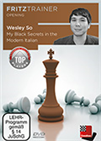 The Italian Game is considered a sound but quiet opening without early trades, giving rise to rich positions where plans are more important than forced variations. So shows black's plans on this DVD.
The Italian Game is considered a sound but quiet opening without early trades, giving rise to rich positions where plans are more important than forced variations. So shows black's plans on this DVD.In these five decades of organised work, who are the greatest figures in the world of chess with whom you have become friends?
We become close to friends we meet every day. In FIDE, we see people during meetings or tournaments. Communication before the internet was not as frequent as we have today. I am happy to meet old friends when we have the chance. Willy Iclicki of Belgium (now Israel) became best man at my wedding. I have many close friends from all over Asia.
You were an Executive Director of FIDE together with the President Florencio Campomanes. Tell us about this experience in times of expansion of this sporting organisation.
Sometimes it amazes me when I recall how Campo and I managed the chess world without email or mobile phones. In Campo’s time, we were only four persons in the FIDE office. As Campo would say, we worked 25 hours a day, eight days a week. Today, I try to share my experience by teaching new Arbiters.
You were also director of the 1992 Manila Olympiad. What were the most difficult organisational problems you encountered?
My job was mainly raising funds and organising the work. We had no PowerPoint then, and I used charts to explain to Ministers and company Presidents what FIDE is and what the Olympiad is. I also organised the 1983 FIDE Congress, a year after Campo was elected. It was a time when opposition leader Ninoy Aquino was assassinated and daily demonstrations disrupted life in Manila. Campo called me and asked me to organise the FIDE Congress and raise funds in a month’s time. I told him it was difficult, and he motivated me by saying: “The difficult you handle, the impossible I do”.
Educated man. As a student of Ateneo de Manila University, he graduated with a degree in Philosophy and Letters. He loves music, literature and sports such as martial arts. In music, he says he prefers "the oldies", while in literature and beyond his obligatory readings on chess content, he highlights his fondness for the works of John Ray Grisham (68), a contemporary American writer known for his stories of judicial suspense and whose works have sold more than 250 million copies worldwide.
Your close friendship and working relationship with Campomanes is well known. In fact, I understand that when he died you were at his side, at which point he exclaimed: what a good time we had! What aspect of this relationship do you value most?
I spent more time with Campo than I did with my own father. Campo always strove for excellence in his work organising chess.
You have been a witness to and actor in important changes in chess as a sport and in FIDE as its governing body; what situations have you found most interesting or challenging?
Controversies would take most of our time and energy, but we have to win the politics to be able to do the work. I proposed the World Cup knockout system to Kirsan when some organisers complained about prima donnas threatening to pull out of a Candidates match of two players and leaving organisers without an event.
Grandmaster Bobby Fischer lived in the Philippines in the late 1970s and early 1980s. In that time period, were you able to coincide in any particular event or circumstance?
Bobby visited the Philippines in 1976 when Campo was trying to revive the match with Karpov. I was assigned to stay with Bobby for a whole month. I had to play racquetball with Bobby, swim with him far into the open seas, go on long nightly walks discussing chess, arrange a date with a Filipina national chess team member he liked, drive him to the yacht of President Marcos, and watch as he replayed games from Chess Informant every night.
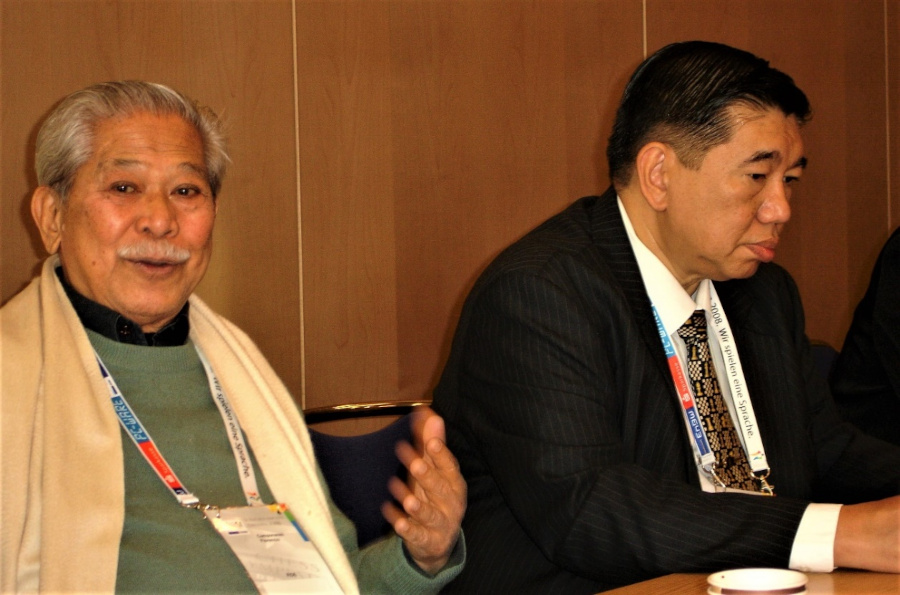
In the middle of a FIDE working session
I would like to comment to Abundo that, in 2006, Campomanes and I returned to Moscow after the scandal in the match between grandmasters Kramnik and Topalov in Elista. There, Campo presented me with very interesting arguments after I had expressed the opinion that “the organisation of the World Championship had been devalued”. In the light of recent events, what can you tell us about this?
I am a member of the FIDE Historical Committee. We understand that the chess community recognizes the history of the World Championship, where a challenger wrests the crown from the champion in a match. Therefore, the final match system has to continue.
What is your role in the FIDE Qualification Commission and what are its objectives?
When I joined Campo in the FIDE Secretariat in 1985 in Switzerland, I saw that my predecessor Dr. Lim Kok Ann was using a scientific calculator to do the FIDE ratings. The list was growing and I offered Campo to program the FIDE ratings, just as I had done for the Philippines before I left. For 30 years, the FIDE ratings were done with my program until the shift to web-based ratings, which I turned over to profesional programmers.
In view of the celebration of the 100th anniversary of the founding of FIDE, tell us about your work and expectations in the FIDE History Commission.
We plan a series of celebrations in historical chess countries on various continents with a visit by a FIDE team and former world champions to give grand simul, academic conferences, awards presentations and gala dinners.
In FIDE you have been recognised as Honorary Member and Special Advisor to President Dvorkovich. What have these distinctions meant to you?
The Honorary Member award is precious to me since it is the highest honour by FIDE for a life in chess. I have served three FIDE Presidents, and I try to help Arkady as much as I can. He has made chess grow even more. More top players benefit from huge cash prizes in the World Cup, Grand Swiss.
What is your opinion on the impact that Artificial Intelligence has had on the quality of chess in recent decades, and what do you see for the future?
When computers began playing chess, many were worried about the future of the sport. Today we see our sport growing undamaged by computers. Instead, we have adapted computers to live analysis. Artificial Intelligence can also be harnessed in general for the Good of humanity.
In recent years, network and media leaders such as Zuckerberg, Gates and Musk himself have been talking about “metaverse” companies that will have a decisive influence on the perception of reality and access to knowledge. Do you think that chess could have a place to participate in this revolution?
Chess has been used to demonstrate technology ever since they invented the chess playing robot. And innovators will continue using chess and also the game of Go.
Mr. Abundo, what question haven’t I asked you that you would like me to ask you?
About my health. I recently had a triple bypass, but I am now fully recovered from this open-heart surgery.
Casto Abundo is one of those who, when faced with a serious physical limitation or disability or illness, usually fights very hard against it and refuses to let it get the better of him. In fact, he feels that he is uncomfortable with ill health — it so happens that, a few weeks ago, he underwent a delicate open-heart operation. He has said that he has come out of it well and that he is in good health and in good general condition. He would like to thank all those who have been looking after him.
Wesley So published two new opening DVDs: 1.b3, the so called Nimzo-Larsen-Attack, for White and his black secrets in the modern Italian. Get them in a package and save money!
Links
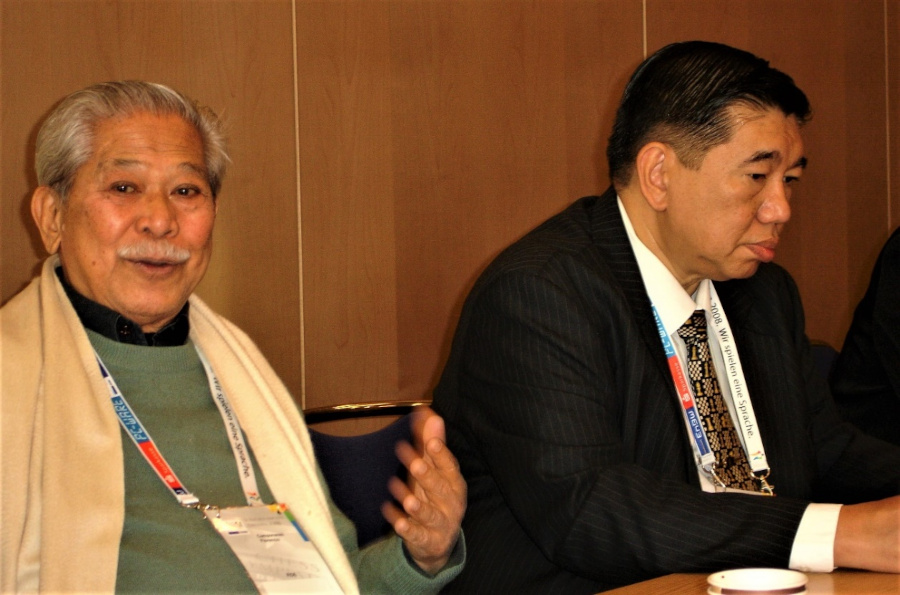

















 I have the pleasure of interviewing Casto Abundo. Called ‘Toti’ by his family and friends, he is one of the most relevant personalities in the world of chess in the last 50 years.
I have the pleasure of interviewing Casto Abundo. Called ‘Toti’ by his family and friends, he is one of the most relevant personalities in the world of chess in the last 50 years.






